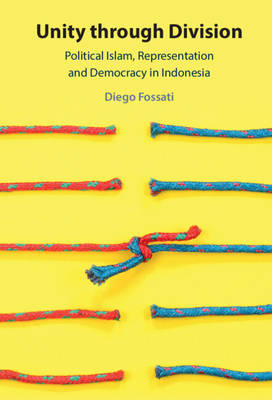
- Afhalen na 1 uur in een winkel met voorraad
- Gratis thuislevering in België vanaf € 30
- Ruim aanbod met 7 miljoen producten
- Afhalen na 1 uur in een winkel met voorraad
- Gratis thuislevering in België vanaf € 30
- Ruim aanbod met 7 miljoen producten
Zoeken
Unity through Division
Political Islam, Representation and Democracy in Indonesia
Diego Fossati
Hardcover | Engels
€ 144,45
+ 288 punten
Uitvoering
Omschrijving
Indonesia, like many other countries around the world, is currently experiencing the process of democratic backsliding, marked by a toxic mix of religious sectarianism, polarization, and executive overreach. Despite this trend, Indonesians have become more, rather than less, satisfied with their country's democratic practice. What accounts for this puzzle? Unity Through Division examines an overlooked aspect of democracy in Indonesia: political representation. In this country, an ideological cleavage between pluralism and Islamism has long characterized political competition. This cleavage, while divisive, has been a strength of Indonesia's democracy, giving meaning to political participation and allowing a degree of representation not often observed in young democracies. While the recent resurgence of radical Islam and political polarization in Indonesian politics may have contributed to democratic erosion, these factors have simultaneously clarified political alternatives and improved perceptions of representation, in turn bolstering democratic participation and satisfaction. This compelling book effectively challenges the wisdom of the role of Islam in Indonesian political life and provides a fresh analysis for debates on democratic backsliding in Indonesia and beyond.
Specificaties
Betrokkenen
- Auteur(s):
- Uitgeverij:
Inhoud
- Aantal bladzijden:
- 250
- Taal:
- Engels
Eigenschappen
- Productcode (EAN):
- 9781009203036
- Verschijningsdatum:
- 22/09/2022
- Uitvoering:
- Hardcover
- Formaat:
- Genaaid
- Afmetingen:
- 152 mm x 229 mm
- Gewicht:
- 526 g

Alleen bij Standaard Boekhandel
+ 288 punten op je klantenkaart van Standaard Boekhandel
Beoordelingen
We publiceren alleen reviews die voldoen aan de voorwaarden voor reviews. Bekijk onze voorwaarden voor reviews.











